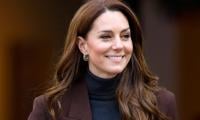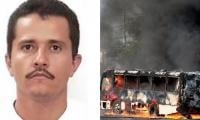An indomitable man
Part - I...Random thoughts
By Dr A Q Khan
January 19, 2015
Today something about the indomitable Ghulam Ishaq Khan, who was born on January 20, 1915. I was closely associated with him for almost 25 years. I respected him like my father and can claim that he loved me like a son. The vacuum left by his death has not been filled so far and probably never will. Other than Quaid-e-Azam, no bureaucrat or president could match his integrity, honesty and patriotism.
I first met Khan Sahib in July 1976. We had come to Pakistan on holiday in December 1975 when I had met Z A Bhutto and he had requested me to remain here to start a nuclear project. Politics aside, Mr Bhutto was very sincere in making Pakistan’s defence impregnable and saving it from Indian hegemony and blackmail. I was posted, albeit after 6 months, as advisor to PAEC and only then received my first salary of Rs3,000 per month. We were definitely not here for the money as I had left behind a good job with a bright future.
Things were not moving at PAEC and I became extremely frustrated. In July 1976 I had already written to the chairman of PAEC complaining and requesting a meeting, to which I received no response. After another week I wrote to Mr Bhutto complaining about the lethargy and lack of interest I was facing and informing him that I was planning to return to Europe. The next day I received a call from Gen Imtiaz telling me that the PM wanted to see me in Lahore immediately.
Upon arrival there I was taken to Governor House where I met the PM and Mr Agha Shahi (secretary general Foreign Affairs). The PM was furious when he heard what I had to say and asked Mr Shahi and Gen. Imtiaz to find a new chairman for PAEC. He asked me to give him 2 or 3 days to sort out the mess. I was shocked to learn that the chairman had told him that a bomb would be made by December 1976! I explained to him that, with the facilities and technology we had, Pakistan would not be in a position to make a bomb even by 2076.
After the meeting I returned to Islamabad where Gen Imtiaz called me two days later for a meeting at the Foreign Office. There I was received by Mr Farhatullah Baig, Mr Agha Shahi’s director. I was familiar with the Foreign Office. In 1967 we had gone there to meet our dear, late friend, Jamiluddin Hassan who, as first secretary at our embassy in The Hague, Holland, had performed our nikkah ceremony and had hosted a reception for us. Mr Qudratullah Shahab, the ambassador to Holland at the time, had acted as my witness.
Already present in Mr Shahi’s office were Mr Ghulam Ishaq Khan (secretary General Defence), Mr A G N Kazi (secretary general Finance) and Gen Imtiaz Ali (MS to the PM). Upon explaining the state of affairs to them, they recommended making me chairman of PAEC. This I refused as it would make the whole world aware of our plans. Other names were suggested but I told them I felt that it would be better to separate the uranium enrichment project entirely from PAEC and given under my charge. They asked for a day to consider all aspects and the next day at our meeting, the three big bosses informed me that my proposal had been approved by the PM.
The new organisation would be fully autonomous and I would head it, but I told Gen Imtiaz I would need full powers and a free hand. After three days a meeting was held at the PM’s office in Rawalpindi where, besides the three big bosses, Gen Zia and Munir Ahmad Khan were also present. At this meeting it was officially intimated that a new organisation – Engineering Research Laboratories (ERL) – would be set up with me as its head and with a Coordination Board consisting of Mr A G N Kazi (chairman), Mr Ghulam Ishaq Khan (member) and Mr Agha Shahi (member) to coordinate and supervise the activities of ERL and PAEC.
I requested the PM to ask Gen Zia to give me a team of competent civil engineers to start construction of the plant on a war footing. Gen Zia posted Brig Zahid Ali Akbar Khan (later Lt-Gen, corps commander Rawalpindi and chairman Wapda) with Col Mahmood, Col Masood Baig, Col Sajawal Khan, Col Aslam, Col Javed, etc as his team. This team did wonders and managed to shock the western world by the speed with which they completed construction.
During the ERL intimation meeting, Munir had whispered that Prof Salam had been invited by the Shahinshah of Iran. Upon Mr Bhutto’s enquiry as to the purpose, he gestured the form of a sphere, meaning an atom bomb. I could not resist interjecting that, though Prof Salam was, no doubt, a top-class theoretical physicist, he had only rudimentary knowledge about nuclear weapons. This was a technical engineering job and no theoretical work was required. Bhutto Sahib merely smiled and the matter was closed.
Upon specific instructions from the board, I prepared a list of the administrative power I would need. In this I received excellent input from Gen Zahid. When we again met the three big bosses they commented that even they did not have such extensive powers – these rested only with the PM. I reminded them that the PM had specifically delegated these powers to them and they could delegate them to me, to which they agreed. I also requested them to give me a trustworthy officer from the Ministry of Finance to work as my director Finance who could take care of all financial matters and Mr Imtiaz Bhatty, a joint secretary, joined ERL.
It is worth mentioning here that while Mr Shahi was a firebrand, Mr Khan and Mr Kazi were both calm and quiet. All three were unreserved in their assistance to me and I had permission to see them at any time, be it at the office or at home. Whatever I requested, I was given. Mr Bhatty proved to be a competent officer, tall and handsome and a former national football player. He loved 3-piece suits and Bally shoes while I preferred more casual clothes – Safari suits and combinations.
As long as Mr Bhutto was in power, we held our meetings in Kazi Sb’s office, but later on in Khan Sb’s office. Once the Kahuta buildings were operational, a review meeting was held there every month and everyone was always keen to hear what progress had been made.
Mr Ghulam Ishaq Khan always seemed most keen to know about the technicalities and the short and long-term goals. He soon knew all my senior colleagues and would greet them by name and discuss their work. At his request I had prepared a short brief for him with information on uranium metallurgy, production of yellow cake, uranium hexafluoride, enrichment technologies and the different routes to making nuclear weapons. He was no longer a layman or a novice but grasped the whole technology.
To be continued
Email: dr.a.quadeer.khan@gmail.com
I first met Khan Sahib in July 1976. We had come to Pakistan on holiday in December 1975 when I had met Z A Bhutto and he had requested me to remain here to start a nuclear project. Politics aside, Mr Bhutto was very sincere in making Pakistan’s defence impregnable and saving it from Indian hegemony and blackmail. I was posted, albeit after 6 months, as advisor to PAEC and only then received my first salary of Rs3,000 per month. We were definitely not here for the money as I had left behind a good job with a bright future.
Things were not moving at PAEC and I became extremely frustrated. In July 1976 I had already written to the chairman of PAEC complaining and requesting a meeting, to which I received no response. After another week I wrote to Mr Bhutto complaining about the lethargy and lack of interest I was facing and informing him that I was planning to return to Europe. The next day I received a call from Gen Imtiaz telling me that the PM wanted to see me in Lahore immediately.
Upon arrival there I was taken to Governor House where I met the PM and Mr Agha Shahi (secretary general Foreign Affairs). The PM was furious when he heard what I had to say and asked Mr Shahi and Gen. Imtiaz to find a new chairman for PAEC. He asked me to give him 2 or 3 days to sort out the mess. I was shocked to learn that the chairman had told him that a bomb would be made by December 1976! I explained to him that, with the facilities and technology we had, Pakistan would not be in a position to make a bomb even by 2076.
After the meeting I returned to Islamabad where Gen Imtiaz called me two days later for a meeting at the Foreign Office. There I was received by Mr Farhatullah Baig, Mr Agha Shahi’s director. I was familiar with the Foreign Office. In 1967 we had gone there to meet our dear, late friend, Jamiluddin Hassan who, as first secretary at our embassy in The Hague, Holland, had performed our nikkah ceremony and had hosted a reception for us. Mr Qudratullah Shahab, the ambassador to Holland at the time, had acted as my witness.
Already present in Mr Shahi’s office were Mr Ghulam Ishaq Khan (secretary General Defence), Mr A G N Kazi (secretary general Finance) and Gen Imtiaz Ali (MS to the PM). Upon explaining the state of affairs to them, they recommended making me chairman of PAEC. This I refused as it would make the whole world aware of our plans. Other names were suggested but I told them I felt that it would be better to separate the uranium enrichment project entirely from PAEC and given under my charge. They asked for a day to consider all aspects and the next day at our meeting, the three big bosses informed me that my proposal had been approved by the PM.
The new organisation would be fully autonomous and I would head it, but I told Gen Imtiaz I would need full powers and a free hand. After three days a meeting was held at the PM’s office in Rawalpindi where, besides the three big bosses, Gen Zia and Munir Ahmad Khan were also present. At this meeting it was officially intimated that a new organisation – Engineering Research Laboratories (ERL) – would be set up with me as its head and with a Coordination Board consisting of Mr A G N Kazi (chairman), Mr Ghulam Ishaq Khan (member) and Mr Agha Shahi (member) to coordinate and supervise the activities of ERL and PAEC.
I requested the PM to ask Gen Zia to give me a team of competent civil engineers to start construction of the plant on a war footing. Gen Zia posted Brig Zahid Ali Akbar Khan (later Lt-Gen, corps commander Rawalpindi and chairman Wapda) with Col Mahmood, Col Masood Baig, Col Sajawal Khan, Col Aslam, Col Javed, etc as his team. This team did wonders and managed to shock the western world by the speed with which they completed construction.
During the ERL intimation meeting, Munir had whispered that Prof Salam had been invited by the Shahinshah of Iran. Upon Mr Bhutto’s enquiry as to the purpose, he gestured the form of a sphere, meaning an atom bomb. I could not resist interjecting that, though Prof Salam was, no doubt, a top-class theoretical physicist, he had only rudimentary knowledge about nuclear weapons. This was a technical engineering job and no theoretical work was required. Bhutto Sahib merely smiled and the matter was closed.
Upon specific instructions from the board, I prepared a list of the administrative power I would need. In this I received excellent input from Gen Zahid. When we again met the three big bosses they commented that even they did not have such extensive powers – these rested only with the PM. I reminded them that the PM had specifically delegated these powers to them and they could delegate them to me, to which they agreed. I also requested them to give me a trustworthy officer from the Ministry of Finance to work as my director Finance who could take care of all financial matters and Mr Imtiaz Bhatty, a joint secretary, joined ERL.
It is worth mentioning here that while Mr Shahi was a firebrand, Mr Khan and Mr Kazi were both calm and quiet. All three were unreserved in their assistance to me and I had permission to see them at any time, be it at the office or at home. Whatever I requested, I was given. Mr Bhatty proved to be a competent officer, tall and handsome and a former national football player. He loved 3-piece suits and Bally shoes while I preferred more casual clothes – Safari suits and combinations.
As long as Mr Bhutto was in power, we held our meetings in Kazi Sb’s office, but later on in Khan Sb’s office. Once the Kahuta buildings were operational, a review meeting was held there every month and everyone was always keen to hear what progress had been made.
Mr Ghulam Ishaq Khan always seemed most keen to know about the technicalities and the short and long-term goals. He soon knew all my senior colleagues and would greet them by name and discuss their work. At his request I had prepared a short brief for him with information on uranium metallurgy, production of yellow cake, uranium hexafluoride, enrichment technologies and the different routes to making nuclear weapons. He was no longer a layman or a novice but grasped the whole technology.
To be continued
Email: dr.a.quadeer.khan@gmail.com
-
 Can App Stores Really Keep Kids Off Social Media? Here’s What Experts Says
Can App Stores Really Keep Kids Off Social Media? Here’s What Experts Says -
 Margot Robbie Fears Being Dubbed A 'dumb Blonde' Due To Major Reasons: 'Hates The Idea'
Margot Robbie Fears Being Dubbed A 'dumb Blonde' Due To Major Reasons: 'Hates The Idea' -
 How Kate Middleton's Hyperemesis Gravidarum Left Her 'not The Happiest'
How Kate Middleton's Hyperemesis Gravidarum Left Her 'not The Happiest' -
 USA Beats Canada For First Olympic Hockey Gold In 46 Years; Donald Trump, Barack Obama & Others Hail Historic Victory
USA Beats Canada For First Olympic Hockey Gold In 46 Years; Donald Trump, Barack Obama & Others Hail Historic Victory -
 Claressa Shields Defeats Franchon Crews-Dezurn In Heavyweight Title Rematch
Claressa Shields Defeats Franchon Crews-Dezurn In Heavyweight Title Rematch -
 Sam Altman Calls Elon Musk’s Space Data Center Plan ‘ridiculous’
Sam Altman Calls Elon Musk’s Space Data Center Plan ‘ridiculous’ -
 Kara Braxton, WNBA All-Star And Champion, Dies At 43
Kara Braxton, WNBA All-Star And Champion, Dies At 43 -
 Anthropic Lead Engineer Predicts ‘software Engineer’ Role Can Disappear By 2026
Anthropic Lead Engineer Predicts ‘software Engineer’ Role Can Disappear By 2026 -
 Sharon Details Late Husband Ozzy's Final Days During His Sickness
Sharon Details Late Husband Ozzy's Final Days During His Sickness -
 Magic Vs Clippers: Clippers Announce Kawhi Leonard Status After Exit
Magic Vs Clippers: Clippers Announce Kawhi Leonard Status After Exit -
 BTC Price Today: Bitcoin Sinks Below $65K On Trade Uncertainty
BTC Price Today: Bitcoin Sinks Below $65K On Trade Uncertainty -
 'A Knight Of The Seven Kingdoms': All You Need To Know About The Finale
'A Knight Of The Seven Kingdoms': All You Need To Know About The Finale -
 NYC Travel Ban: Mamdani Shuts Down Roads Amid Blizzard Conditions
NYC Travel Ban: Mamdani Shuts Down Roads Amid Blizzard Conditions -
 Alicia Keys Celebrates 25 Years Of Breakout Single ‘Fallin’’
Alicia Keys Celebrates 25 Years Of Breakout Single ‘Fallin’’ -
 Akinola Davies Jr. Gives His Immigrant Parents A Shoutout In 2026 BAFTAs Acceptance Speech
Akinola Davies Jr. Gives His Immigrant Parents A Shoutout In 2026 BAFTAs Acceptance Speech -
 Princess Beatrice, Eugenie Told 'first Thing They Should Do' After Andrew Arrest
Princess Beatrice, Eugenie Told 'first Thing They Should Do' After Andrew Arrest



